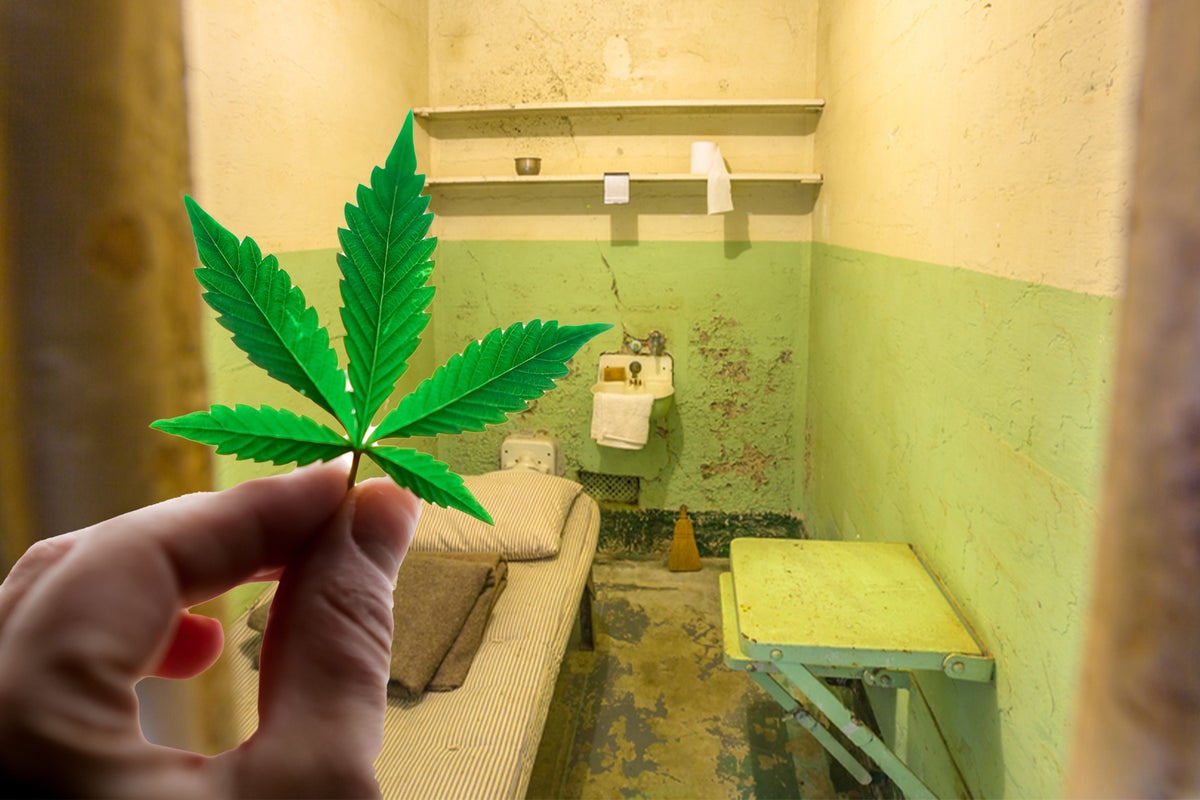[ad_1]
As one Republican governor after another rejects President Biden’s suggestion to pardon simple cannabis possession convictions, one wonders what they’re thinking. After all, cannabis legalization is all the rage these days, with support skyrocketing and midterms approaching. Even the President is leaning in that direction with his recent pardons of thousands of federal cannabis offenders.
A quick trip over to FollowTheMoney.org might shed some light on at least three governors who remain adamant, despite the will of their constituents, about keeping weed illegal and people locked up tight for violations.
Republican Govs. Greg Abbott of Texas, Bill Lee of Tennessee and Asa Hutchinson of Arkansas who all rushed to publicly pan Biden’s pardon request happen to have received a total of $263,875 from donors linked to the private prison industry, David Sirota pointed out. Hutchinson received less than $10 grand. Indiana Governor Eric Holcomb also joined the unforgiving group though his donors showed no private prison connections.
Is The Anti-Cannabis Lobby Keeping The Beds Filled In Private Prisons?
The U.S. has a combination of government-run prisons and private, for-profit prisons. We also have the highest incarceration rate per capita in the world. This translates to over two million prisoners nationwide with 45% imprisoned for drug offenses, including many for cannabis, according to the Bureau of Prisons (BOP).
A total of 26 states and the federal government use private corporations such as the GEO Group GEO, CoreCivic (NYSE: CXW) (formerly Corrections Corporation of America, CCA), Management and Training Corporation and LaSalle Corrections, which combined incarcerated nearly 100,000 Americans in 2020. Since then, the number of people incarcerated in private prisons has increased by 14%.
Then there’s Palantir PLTR, the secretive data-mining firm co-founded by Trump adviser Peter Thiel who also co-founded PayPal PYPL and Atai Life Sciences (NASDAQ: ATAI) psychedelics company. Palantir, which specializes in big data analytics, has faced sizzling criticism for its work with U.S. Immigration and Customs Enforcement (ICE).
Let’s Look At Florida’s Anti-Cannabis Lobby, As An Exampe
Private prisons in Florida are very busy. In fact, the prison population has doubled since 2000 and is still growing despite Biden’s 2021 executive order to end their use and not renew any contracts. The Washington Post reported that GEO and CoreCivic donated nearly $2.5 million to the GOP of Florida PAC over the last two decades, which covered the campaigns of Sen. Marco Rubio and former Governor and now Sen. Rick Scott who received a six-figure donation from GEO seemingly encouraging him to oppose the legalization of medical marijuana. Current Gov. Ron DeSantis has grudgingly accepted MMJ though he has also said he’d never sign a full legalization bill.
Who Owns All These Private Prison Stocks?
Fidelity, BlackRock BLK, State Street STT and Vanguard are all big private prison investors. BlackRock is the largest investor in CoreCivic with a stake of 15.38%.
CoreCivic and rival GEO Group have faced numerous lawsuits and accusations of housing people in unsafe conditions and keeping inmates as long as they can to maximize revenue. The stock of CoreCivic, the first to operate both private prisons and for-profit immigration detention centers, took a beating recently due to the above.
Bill Keller, award-winning journalist and founding editor-in-chief of The Marshall Project told The Guardian recently that it was President Reagan who first pushed “the idea of privately run, for-profit prisons. Since the new prison owners were paid the same way as hotel proprietors, by occupancy, they had no incentive to prepare prisoners for release.”
So, without those 45,000 cannabis prisoners, there will be lots more empty beds in prisons, both public and private. Any questions?
Photo: Kindel media by Pexels and Benny Marty by Shutterstock
[ad_2]
Image and article originally from www.benzinga.com. Read the original article here.

